Screenshot of Tuesday’s Humboldt County Board of Supervisors meeting.
###
Facing ongoing budgetary constraints and a dwindling pot of discretionary money from Measure Z, the Humboldt County Board of Supervisors on Tuesday voted to cut funding for the county’s Mobile Intervention Services Team (MIST), which serves homeless people experiencing mental health crises, to maintain essential county services.
Measure Z, the county’s half-percent sales tax intended to maintain and enhance public safety and essential services, currently funds 83 county staff positions and provides money to some outside agencies, including local fire departments. Those funds have dried up in recent years due to a reduction in economic activity across the county, cutting millions of dollars from the county’s projected income.
Back in June, the board formed an ad hoc subcommittee, comprised of Second District Supervisor Michelle Bushnell and Third District Supervisor Mike Wilson, to come up with a “percentage-based allocation methodology for Measure Z revenues” to reduce county allocations to “no more than 80 percent of ongoing funding (70 percent of all available funding)” by Fiscal Year 2026-27.
“The ad hoc met several times since its formation and struggled with the decision to cut county allocations … or to by default cut allocations to outside agencies,” the staff report states. “Ultimately, the ad hoc was not able to develop an option that meets the goal set forth by the board … .”
The ad hoc subcommittee came up with three options to address the Measure Z fund’s dwindling balance:
- Option 1 would retain all of the 83 county positions currently allocated to Measure Z – including eight of the 16 new positions allocated in Fiscal Year 2022-23 – but cap funding for larger county departments, such as the Humboldt County Sheriff’s Office. Specifically, this option would have deallocated funding for the Public Works Department’s brush-cutting crew, forcing the department to seek funding through a potential road tax. This option would have also cut funding for the Department of Health and Human Services’ (DHHS) MIST program beginning in FY 2025-26.
- Option 2 would take the first scenario one step further by cutting funding for MIST at the end of the current fiscal year, reducing Measure Z-allocated positions from 83 to 79.
- Option 3 would maintain the status quo.
(A more detailed description of each of option can be found in the staff report at this link.)
Deputy County Administrative Officer Sean Quincey noted that the four MIST positions that would be cut under Option 2 represent approximately $425,000 in Measure Z expenses in FY 2024-25, and up to $468,000 by FY 2026-27.
First District Supervisor Rex Bohn asked if staff had looked into alternative funding opportunities for MIST. “There always seems to be other funding, especially on the state and federal side,” he said. “Is there anything we can do to push that envelope so we can get those kinds of grants?”
Staff has discussed the issue with DHHS Director Connie Beck and Sheriff William Honsal, Quincey said, but they have yet to identify a new funding source. “That’s part of the reason for the recommendation to fund those positions for a couple of years while they go and continue seeking funding that could replace that program or find some different methods to deliver those services,” he added.
Beck jumped in via Zoom and said she has been looking into the county’s benefits provided by CalAIM (California Advancing and Innovating Medi-Cal) which will be available in January.
“But because we just did the cut over to CalAIM, I would like to ask that we continue funding the MIST program through June 30, 2024,” she said. “Just know that you don’t have to direct us to look for other funding. We’ve been searching for other funding and know that Measure Z is important to the community and others. We do the best we can to fund our own programs without Measures Z or others.”
Fourth District Supervisor Natalie Arroyo advocated for MIST, noting that “it is an incredibly important program.” She felt the alternative revenue streams looked “very promising” but said, “I do think it’s really critical that we ensure that that program doesn’t go away.”
Turning to the issue of brush control, Fifth District Supervisor and Board Chair Steve Madrone said he gets more calls about brush along the side of the road than he does about potholes.
“Even with this road crew … it still presents lots of hazards,” Madrone said. “Given our lack of funding for our roads as a whole, I would really love to think about other ways to raise revenues for vegetation maintenance, rather than taking it away from whatever road tax we might pass in November, which we don’t know where the voters are gonna go with such a thing.”
Public Works Director Tom Mattson expressed concern for “telling people we’re spending their ballot measure money before we even have a ballot measure passed.”
Mattson asked the board to continue funding the brush-cutting crew for the time being, noting that the county has “already leveraged hundreds of thousands of dollars of CalFire money” on the program.
“They are really focused on, not just the roadside vegetation, but also fire hazard reduction [and] helping communities save themselves,” he said. “My plea here today is to keep these in Measure Z and [to] not put this on the table for discussion. … I cannot afford these positions right now on the road crew.”
Humboldt County Sheriff William Honsal called in to advocate for the sheriff’s office as well, but a poor phone connection made it nearly impossible for the board to hear what he was saying.
Regina Fuller, finance director for the Humboldt County Sheriff’s Office, spoke on his behalf during public comment. She urged the board to maintain the status quo (Option 3), noting that the sheriff’s office is already struggling to fund some of its existing positions.
“I would like to remind you that in this current fiscal year, the sheriff’s office’s Measure Z funding allocation was not sufficient to cover the operations of the Willow Creek station, which has historically been funded by Measure Z since 2017, as well as two law enforcement positions for a total of $405,000,” Fuller said. “To avoid closing the station and laying off the two employees, your board granted the sheriff’s office one-time funding from the general fund.”
To fully fund all of the Sheriff’s Office’s allocated positions, including “essential” deputy overtime, the county would need to put up another $660,000. “I know it’s believed that larger departments have the ability to take care of these shortages with vacancies. Our office has been doing that for over four years now and we have nothing left to give,” she said.
Bushnell expressed concern for the sheriff’s office as well but emphasized that the “status quo does not leave any money for fire” service. She advocated for dedicated funding for local fire districts, noting that “they don’t have a set amount of money that they get, so they’re not able to apply for grants or match grants because they always have to apply for the funding.”
Wilson advocated for local fire districts as well, noting that volunteer fire departments are often the first to respond to emergencies, especially in rural communities.
“It’s true the sheriff’s office is stretched thin by budget and personnel [but] we’re not the only place that’s like that,” he said. “There’s just so much that the community relies on with relationship to that volunteer network, and I want to make sure that we do what we can to keep that network alive and thriving. I think it’s also beneficial to the sheriff’s department. I mean, they need those people there to be to supplement and help law enforcement.”
Lon Winburn, the Fire Chief Association representative for the Measure Z Citizens Advisory Committee, reminded the board of the critical need for emergency services funding that led to the creation of Measure Z.
“I think that the voters, you know, saw the need and I think they supported the need,” he said during public comment. “I just hope that you will keep that in mind as you move forward with these decisions. I know we’re not a county entity, I get it. You’re not responsible for fire [services]. I get that too. But we’ve always had a great partnership. And I’d really, really like to see that continue.”
Also speaking during public comment, Glenn Ziemer, former chair of the Measure Z Citizens Advisory Committee, criticized the Board of Supervisors for failing to listen to the committee’s recommendations over the years.
“The staff response to our committee and our report was that we were being overly alarmist,” he said. “The reality was that the significant salary increases and the resulting increases in benefit costs was accelerating the rate at which the county was dominating the [Measure Z] fund and the county share cost was outpacing any growth in the fund revenue. The straw that broke the camel’s back was the board’s stunningly short-sighted decision last year to use a one-time funding windfall to create a range of new county positions that will result in even higher ongoing county expenditures from the fund.”
Ziemer asked the board to eliminate the county positions that were created last year and to eliminate the 22 vacant Measure Z-funded positions previously identified by the CAO’s Office.
“Elimination of a significant portion of these vacancies can begin to restore some balance to the fund,” he said. “The board also needs to establish a hard cap on the county share of the fund expenditure. I have no doubt this will seem to be a radical proposal from your perspective, [but] nothing less will address the problem the fund is experiencing.”
After two hours of deliberation on the matter, Bohn somewhat reluctantly made a motion to approve Option Two, to deallocate funding for MIST. Bushnell offered a second.
Arroyo said she would support the action, but emphasized the importance of the program.
The motion passed 5-0.
The board came up with a second motion to revisit the subject in January and discuss the future of the Measure Z Citizens Advisory Committee’s role going forward. The motion passed 4-0, with Bohn absent due to a previous engagement.
Upcoming Board Appointments
The end of the year comes with several housekeeping items for our Board of Supervisors, including the appointment of board chair and vice-chair for the new calendar year. In keeping with the board’s tradition of having its vice-chair succeed the current chair of the board, Bohn was appointed to the position of board chair and Bushnell to vice-chair.
The board also went over list of appointments to various other boards, commissions and committees for 2024. This process can be a little touchy, as some board members become quite attached to their assignments and are reluctant to fork over the duties to another, potentially better-suited board representative.
The appointment process was relatively painless, but quite dull. The board spent about an hour and a half going over the list of 36 appointments and agreed to switch up a few of assignments among its members but kept most positions as is. No hurt feelings this time around!
Letter Addressing Groundfish Fisheries Closure
During the board’s review of the consent calendar, Wilson drew attention to a draft letter, brought forth by Bohn, to California Department of Fish & Wildlife Director Charlton Bonham declaring the county’s opposition to the state’s closure of the nearshore groundfish fishery earlier this year.
The entire fishery was closed in the Northern Groundfish Management Area due to declining numbers of quillback rockfish, according to the letter. “In our view, it would have been more prudent for CDFW to isolate the nearshore closure strictly to the quillback rockfish … but allow other non-threatened rockfish to be pursued.”
“As a rural coastal community, many residents of Humboldt County are reliant on the local marine fishery for their livelihood such as charter boat owners, fishing supply stores, and seafood restaurants,” the letter states. “Sport ocean fishing is a major attractant for visitors to our community and many sectors of our economy rely on this tourism such as grocery stores, gas stations, motels, RV parks, restaurants, etc. The effect on the individual fisherman and small business owners has been and will continue to be devastating.”
Wilson said he’d support the letter but asked for it to be fact-checked before being sent. “There are just sentences in here saying we did things … and I don’t want people to misconstrue [our involvement.]”
Bohn admitted that he “basically plagiarized the hell out of” Del Norte’s letter to CDFW and said he would be fine with any changes Wilson had in mind.
The suggested modifications to the letter were approved by the board, along with the rest of its consent calendar, 5-0.
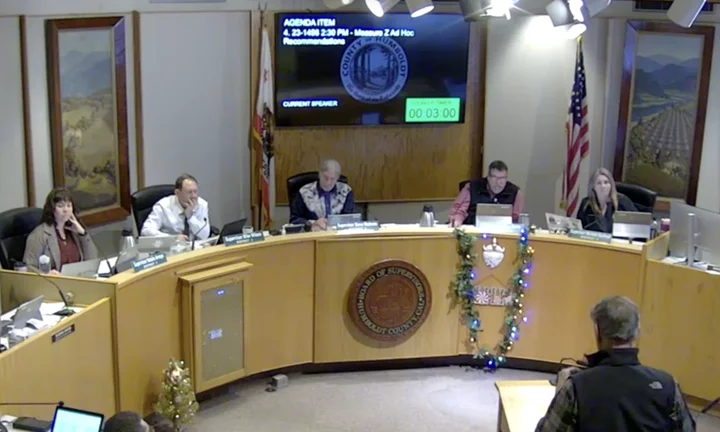
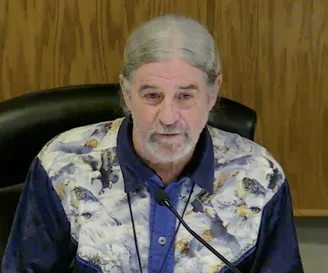
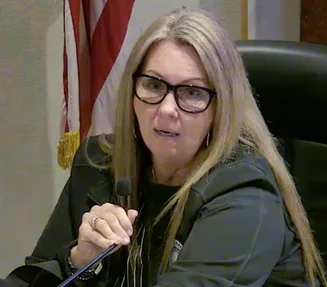
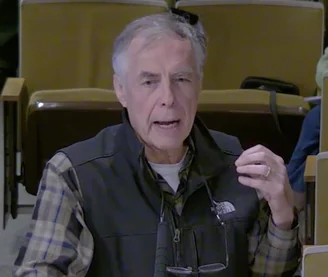
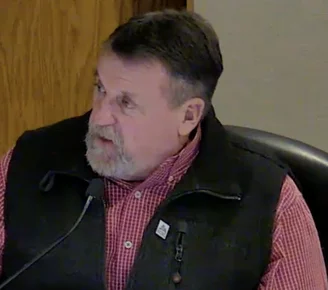
CLICK TO MANAGE